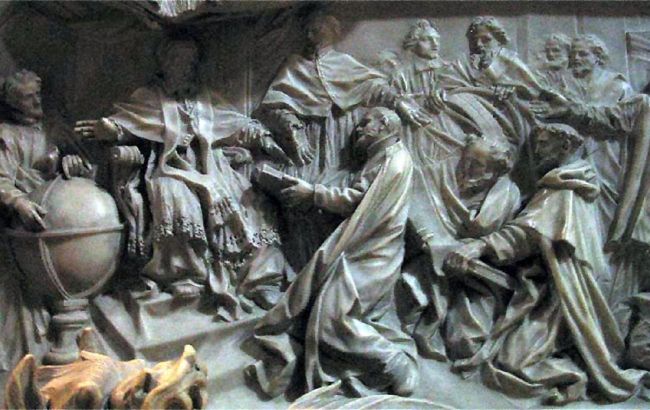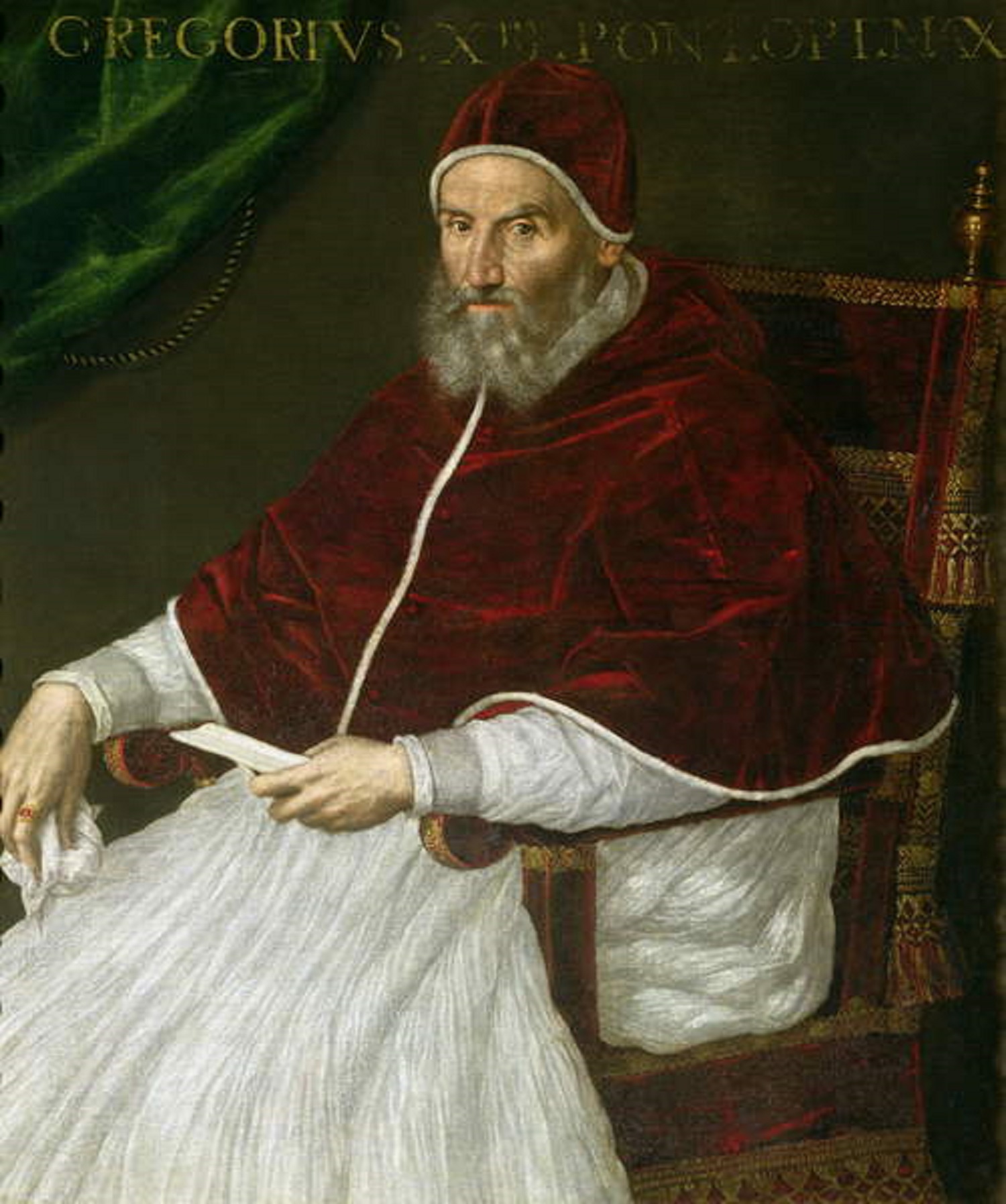Why New Year is celebrated on January 1
 Sculptural composition “Introduction of the Gregorian Calendar” (photo: Wikipedia)
Sculptural composition “Introduction of the Gregorian Calendar” (photo: Wikipedia)
Celebrating the New Year on January 1 seems like a natural thing to do, but have you ever wondered why this day became the beginning of the year? From ancient calendars to the modern Gregorian calendar, the path to this decision has been long and full of changes.
The first calendars: observing nature
In ancient times, people built their calendars based on natural cycles. The sun, the moon, and the changing seasons were the main reference points for determining time.
For example, in ancient Egypt, the new year began in the summer, when the Nile River flooded. This was vital for the harvest and water supply. The Romans have long celebrated the beginning of the year in the spring when nature came to life. Changes in the calendar were directly related to the need to harmonize life with natural cycles.
At the time, no one imagined that one day - January 1 - would someday become a universal start. Each culture had its own unique dates that symbolized the beginning of a new cycle. These different approaches made the calendar not only a tool for measuring time but also a reflection of cultural characteristics.
The Roman calendar and its reforms
The first Roman calendar was based on the phases of the moon and had only 10 months. The year began in March, and this is quite logical because it was then that spring field work began. But over time, the discrepancies between the calendar and real time became apparent.
In 46 B.C., Julius Caesar decided to restore order and introduced the Julian calendar. He moved the beginning of the year to January 1 to coincide with the election of consuls, who took office on that day. It was a symbol of a new political cycle, and this change laid the foundation for the modern tradition.
It was then that January 1 began to be associated not only with politics but also with a symbol of renewal. The Julian calendar was a key step in time standardization that has remained relevant for centuries.
.jpg)
The statue of Julius Caesar in Rome (photo: Wikipedia)
Medieval confusion with dates
In medieval Europe, not everyone agreed on January 1 as the beginning of the year. Although the Julian calendar remained official, church leaders favored religious dates.
In many countries, the new year used to begin on December 25 (Christmas Day), March 25 (Annunciation), or even on Easter. This created chaos in international relations, as the same date could mean different years for different countries. People were confused, and officials had to clarify the dates of documents.
The confusion eventually showed how important a unified chronological system was. It was during this period that people began to realize that the calendar influenced not only religion but also economics and politics.
The Gregorian calendar and the final decision
In 1582, Pope Gregory XIII carried out another reform of the calendar to align it with astronomical cycles. The Gregorian calendar became more accurate, but its implementation took centuries. For example, in Great Britain and its colonies, the new style was adopted only in 1752.
Along with the new calendar, January 1 was approved as the official beginning of the year. This decision was a compromise between state and religious interests, as well as a simplification for international relations.
Eventually, the Gregorian calendar became generally accepted in most countries. Today, we don't even think about how much effort went into creating this convenient time system.

Pope Gregory XIII (photo: Wikipedia)
Modern celebration of January 1
Today, January 1 has become a symbol of a new beginning for millions of people. Despite the diversity of calendars and traditions in the world, the Gregorian calendar has remained the most widespread. People celebrate this day with colorful fireworks, loud parties, and lists of New Year's resolutions.
At the same time, some cultures keep their own New Year's dates, such as Chinese New Year or Rosh Hashanah. Still, January 1 unites people in their desire to start the year with a clean slate. It is a day when history and modernity are harmoniously intertwined, reminding us of unity in diversity.
Even in our time, this day has a special magnetism that encourages us to dream and make plans. The New Year is not just a date, but a moment when the world becomes a little closer and kinder.
Learn more about New Year traditions in RBC-Ukraine's article.
Sources: History, Britannica, Wikipedia.

